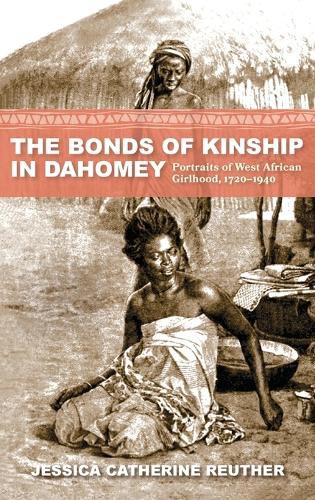Readings Newsletter
Become a Readings Member to make your shopping experience even easier.
Sign in or sign up for free!
You’re not far away from qualifying for FREE standard shipping within Australia
You’ve qualified for FREE standard shipping within Australia
The cart is loading…






This title is printed to order. This book may have been self-published. If so, we cannot guarantee the quality of the content. In the main most books will have gone through the editing process however some may not. We therefore suggest that you be aware of this before ordering this book. If in doubt check either the author or publisher’s details as we are unable to accept any returns unless they are faulty. Please contact us if you have any questions.
From the 1720s to the 1940s, parents in the kingdom and later colony of Dahomey (now the Republic of Benin) developed and sustained the common practice of girl fostering, or "entrusting." Transferring their daughters at a young age into foster homes, Dahomeans created complex relationships of mutual obligation, kinship, and caregiving that also exploited girls' labor for the economic benefit of the women who acted as their social mothers.
Drawing upon oral tradition, historic images, and collective memories, Jessica Reuther pieces together the fragmentary glimpses of girls' lives contained in colonial archives within the framework of traditional understandings about entrustment. Placing these girls and their social mothers at the center of history brings to light their core contributions to local and global political economies, even as the Dahomean monarchy, global trade, and colonial courts reshaped girlhood norms and fostering practices.
Reuther reveals that the social, economic, and political changes wrought by the expansion of Dahomey in the eighteenth century; the shift to "legitimate" trade in agricultural products in the nineteenth century; and the imposition of French colonialism in the twentieth all fundamentally altered-and were altered by-the intimate practice of entrusting female children between households. Dahomeans also valorized this process as a crucial component of being "well-raised"-a sentiment that continues into the present, despite widespread Beninese opposition to modern-day forms of child labor.
$9.00 standard shipping within Australia
FREE standard shipping within Australia for orders over $100.00
Express & International shipping calculated at checkout
This title is printed to order. This book may have been self-published. If so, we cannot guarantee the quality of the content. In the main most books will have gone through the editing process however some may not. We therefore suggest that you be aware of this before ordering this book. If in doubt check either the author or publisher’s details as we are unable to accept any returns unless they are faulty. Please contact us if you have any questions.
From the 1720s to the 1940s, parents in the kingdom and later colony of Dahomey (now the Republic of Benin) developed and sustained the common practice of girl fostering, or "entrusting." Transferring their daughters at a young age into foster homes, Dahomeans created complex relationships of mutual obligation, kinship, and caregiving that also exploited girls' labor for the economic benefit of the women who acted as their social mothers.
Drawing upon oral tradition, historic images, and collective memories, Jessica Reuther pieces together the fragmentary glimpses of girls' lives contained in colonial archives within the framework of traditional understandings about entrustment. Placing these girls and their social mothers at the center of history brings to light their core contributions to local and global political economies, even as the Dahomean monarchy, global trade, and colonial courts reshaped girlhood norms and fostering practices.
Reuther reveals that the social, economic, and political changes wrought by the expansion of Dahomey in the eighteenth century; the shift to "legitimate" trade in agricultural products in the nineteenth century; and the imposition of French colonialism in the twentieth all fundamentally altered-and were altered by-the intimate practice of entrusting female children between households. Dahomeans also valorized this process as a crucial component of being "well-raised"-a sentiment that continues into the present, despite widespread Beninese opposition to modern-day forms of child labor.